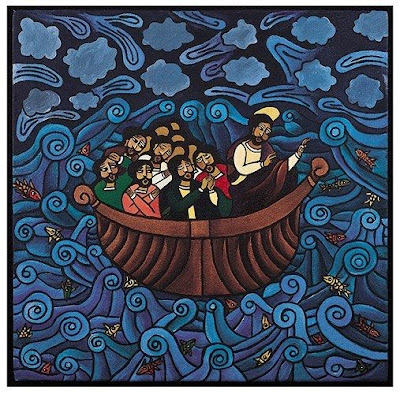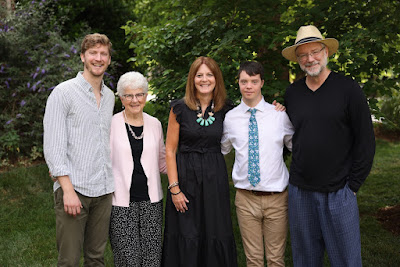Nearly all US COVID-19 deaths now preventable.
So read the headline in the University of Minnesota's Center for Infectious Disease Research and Policy new article. The CDC released May's COVID numbers. And there was much to celebrate:
- Daily deaths in America have fallen from several thousand to several hundred since January.
- And almost none of those deaths are in fully vaccinated people (150 in vaccinated compared to over 18,000 in unvaccinated people in May).
- There have been many vaccines in development (94 so far) and will continue to be, with phases of trials, rigorous testing, peer-reviewed data for publication, emergency use authorisations. A handful have full approvals in other countries. The sheer volume of effort and numbers can be overwhelming. Three are widely available and authorised for current emergency use in the USA (Pfizer, Moderna, and Johnson and Johnson). The vaccines range in efficacy in published trials and in real-world follow up, but generally a person is 80-90% less likely to get COVID with one of these vaccines than without, and 90-100% less likely to die.
- This is borne out in the real reduction of COVID in the places where vaccine roll out has been good. Such as the new and encouraging data for May in America.
- Every single medicine, vaccine, even food or cosmetics, has risks and side effects when put in our bodies. But we always have to compare the risk of a complication from a vaccine to the risk of such a complication from the disease. And so far no serious side effect has been found to be definitely associated with the vaccines, and even the rare events that have occurred after (not necessarily because of) vaccination have been dwarfed by similar events in people with the illness.
- 2.8 billion vaccine doses have been given in the world, so COVID vaccines are not exactly cutting edge risky unknowns any more.
- Eventually, perhaps. In places with high vaccine coverage most diseases like measles or polio do not reach even those that refuse vaccines. Some people can ride on the steps taken by others. This should comfort the extremely rare person with an anaphylactic reaction to a vaccine.
- However, this coronavirus has some characteristics that might make that goal of herd protection many years away. It is a very very transmissible disease that has no precedent and therefore no background immunity. Places with low vaccination and high transmission are breeding grounds for variants. So by waiting for herd immunity, you might be part of the process of incubating more lethal forms of this illness. Sadly we see this happening before our eyes. Uganda is now experiencing a new wave of disease of the Delta variant (accounting for 95% of new cases), because other parts of the world did not lock down or take vaccines. This is happening in many countries, and will probably soon be a major problem in America too.
- If that is true, it will become an endless cycle of trying to stay one step ahead on new vaccine boosters but always being defeated by the 30% or 40% of vaccine refusers who are generating variants.
- This is similar to the question above, but more from the perspective of individual encounters than population based data. If you are unvaccinated, whether you are symptomatic or not, you're much more likely to be carrying virus. So you should practice other public health measures, which we refer to as MOSSY: wear Masks, visit Outdoors, Sanitise your hands and surfaces, stay socially Spaced apart, and be You-centered (think of others). Or you can think of it this way: aim for 2 out of 3 between masked, outdoors, spaced. If you can be outdoors and spaced, then you could forgo masks. If you are masked and outdoors, then you can be near. If you are masked and spaced, then you could be indoors. (This advice applies to Americans, not to parts of the world with rising infection numbers).
- That means it is possible to do some things with uneven vaccination, like a family picnic. Shorter exposures are less risky too. But other things, like an overnight visit to spend days indoors sharing kitchens, eating together, being in close contact, are not advisable.
- While all the vaccines are effective, none are 100% and never will be. So, I think it is important to ask, if your grandmother or your cancer-treatment neighbour encountered infection from you and became one of the 150 deaths in May of fully vaccinated people that got COVID anyway, can you live with that? Any one visit to any one vaccinated person is not likely to kill them. But do you want to be the unvaccinated person who happens to be the one that brings a lethal virus to a vulnerable person?
- Every country strikes a balance between personal freedoms and public safety. Some people would like to drink and drive, but as a culture we have seen that doing so robs innocent people of life, so we have decided not to allow it. You can drink to a stupor, but if you do so, you can't drive. You can smoke cigarettes, but not in public spaces where children would inhale the second hand smoke. You can build an apartment complex, but you have to follow codes intended to keep it from collapsing. We limit our "freedoms" continuously to avoid harm to others. In the same way, you can decide not to be vaccinated, but if you do so, you should consider, whether that should also obligate you to stay isolated.
- So, there is a strong precedent for the interests of society to establish some guidelines to protect others. The entire book of Leviticus is filled with prohibitions on freedoms designed to help a massive group of liberated nomads walk through the desert alive. People with suspicious skin rashes had to stay away from others, even though God loves all of us.
- Staying away from others because of choosing against vaccination is a high and sad price to pay. And in many cases, it is also a high price to ask others to pay. Because it isn't just those who choose to not vaccinate that are affected, it is their entire circle of humanity. I think this is what makes me so so sad. When I see people in their 80s who have taken the "risk" and been vaccinated . . . . still deprived of some life-giving social interactions because some in a family, or book club, or Bible study, or friend group, or office, do not want to use the vaccine, it is hard. This issue is really dividing so many friends and family from each other.
- The view from Uganda is quite different. Here, we know that if someone gets very ill, except in very elite cases, there will not be an intensive care option. There will likely not even be oxygen. People around us would LOVE to be able to be vaccinated, but the vaccines which we received only allowed about 1% of the country to access protection. So, it's good to bear in mind that agonising over vaccine safety is largely a first-world dilemma. In the majority world, COVID is seen as a matter of life and death and many people would be incredulous to know that Americans elect to NOT be vaccinated.
- Because Uganda has little recourse to vaccines or to technical care, this country locked down severely in March 2020. That kept the virus mostly out, and we managed for over a year with very low infection levels, and restrictions slowly relaxed. But the world is interconnected, and before this country could vaccinate more than a limited number of essential workers, the Delta variant (which arose because other places were not following public health protocols) is now storming through. It is quite heart breaking to have a front line view of the local consequences of failed global public health.
- As part of an organisation based on cross-border travel, we do spend a LOT of time and energy reading, researching, pondering, praying about this pandemic. It is our sincere desire to live in loving ways to the world, to practice what we preach. So Serge has taken some firm stands on vaccination, lest we be contributing to the demise of the poor. We are thankful for that stand. But if that's not what you think about most days, please take all the above with grace! We might sound alarmist to you, but in our world we are desperately trying to protect our octogenarian mothers, our special-needs relatives, and our locally terrified hospital staff.






























